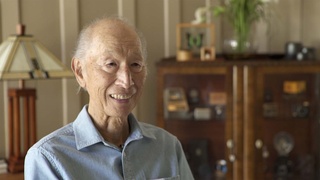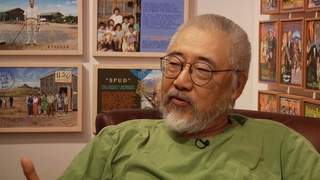Interviews
Didn't have rights that whites had
We didn’t have all the rights that caucasians had, and it was because of racism. And, of course, when December 7th happened, it was also hysteria, and Americans also looked at December 7th from a very economic point of view. I mean, Japan had been working the land. I mean, she was given only the worst kind of desert land and she made it fertile. And so, other farmers—caucasians—it would be to their advantage if the Japanese were thrown out, and they could work the land. Uh so, I think on what are the civil rights we lost: I think, well, we never had all the civil rights. Uh, and I think, that’s how come, too, that there came to be a group called the “No No Boys.” Because, they felt it was more important to fight for civil rights, than to fight the enemy. I think a lot of Japanese felt they weren’t treated like a real American.
Date: June 16, 2003
Location: California, US
Interviewer: Karen Ishizuka, Akira Boch
Contributed by: Watase Media Arts Center, Japanese American National Museum.





